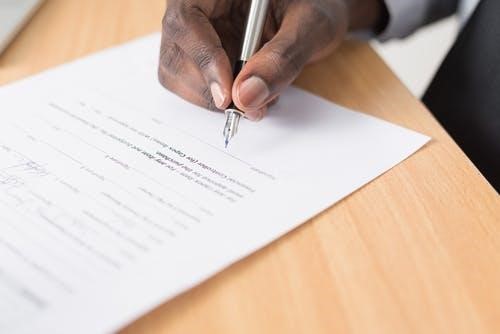Damage Documentation for Insurance is very important because an unexpected events can cause significant damage to our property, insurance policies are designed to provide financial protection in such situations. However, to make the most of your insurance coverage, you need to document the damage thoroughly. This comprehensive guide will walk you through the importance of damage documentation for insurance claims and offer practical tips on how to do it effectively.
Why Documentation Matters in Damage Documentation for Insurance
- Ensuring Fair Compensation When you file an insurance claim, the insurance company assesses the damage to determine the compensation you’re entitled to. The more accurate and comprehensive your documentation is, the more likely you are to receive a fair settlement.
- Meeting Policy Requirements Most insurance policies require policyholders to document damage as part of the claims process. Failing to do so may result in the denial of your claim or a reduction in your payout.
- Reducing Disputes Comprehensive documentation can also help prevent disputes between you and the insurance company. When there’s clear evidence of the damage, there’s less room for interpretation.
Preparing for Damage Documentation in Damage Documentation for Insurance
- Understanding Your Policy Before an accident occurs, familiarize yourself with your insurance policy. Understand what it covers, any exclusions, and the claims process. This knowledge will help you know what to document and what to expect.
- Inventory Your Property Create a detailed inventory of your possessions, including their value. This will help you establish the extent of your losses after an incident.
- Digital Record Keeping It’s a good idea to maintain digital records of important documents related to your insurance, such as your policy, receipts for valuable items, and contact information for your insurance company. This will make it easier to access the necessary information when filing a claim.
Documenting Property Damage in Damage Documentation for Insurance
- Taking Photographs Photographs are one of the most powerful tools for documenting property damage. Take clear and comprehensive pictures of the damaged areas or items from multiple angles. Be sure to date and label each image.
- Videos In addition to photographs, consider shooting videos of the damage. A video can provide a more detailed view of the affected areas and help you narrate the extent of the damage.
- Written Descriptions Include written descriptions of the damage. Note the date and time of the incident, what caused the damage, and the specific areas or items affected. These descriptions should be detailed and specific.
- Collect Witness Statements If there were witnesses to the event that caused the damage, their statements can be valuable. Have them describe what they saw and provide their contact information for reference.
Documenting Personal Injury in Damage Documentation for Insurance
- Seek Medical Attention If the incident involves personal injury, seeking prompt medical attention is essential. Your medical records, including diagnoses, treatment plans, and expenses, are crucial components of your documentation.
- Take Photos of Injuries Photograph any injuries you sustained as a result of the incident. These photos can serve as visual evidence of your injuries.
- Medical Bills and Records Keep copies of all medical bills and records, including hospital stays, surgeries, medications, and rehabilitation. These documents can be used to calculate your medical expenses for the claim.
Documenting Vehicle Damage
- Insurance Adjuster Inspection If your vehicle is involved in an accident, it’s common for an insurance adjuster to inspect the damage. Be present during the inspection and take your own photographs and notes.
- Estimate from Repair Shops Obtain written estimates from reputable auto repair shops. These estimates can provide an independent assessment of the repair costs and help prevent lowball offers from the insurance company.
- Vehicle Information Keep records of your vehicle’s make, model, year, and any customization or aftermarket upgrades. This information will help establish the vehicle’s value for a potential claim.
Documentation After a Natural Disaster
- Contact Your Insurance Company After a natural disaster, contact your insurance company as soon as possible to report the damage for good Damage Documentation for Insurance. Many insurance policies have specific deadlines for reporting such incidents.
- Proof of Loss Your insurance company may ask you to submit a proof of loss form. This document summarizes your claim and the items affected, so ensure it’s accurate and comprehensive.
- Work with Contractors If your property is severely damaged, consider hiring a contractor to assess the damage and provide a detailed repair estimate. This can help you establish the scope of work required.
Tips for Effective Documentation
- Be Thorough Document every detail related to the damage. The more comprehensive your records, the stronger your claim will be.
- Keep Records Secure Maintain physical and digital copies of your documentation in a safe place. Ensure they are easily accessible when needed.
- Maintain a Claim Diary Create a claim diary to track the entire process, including communications with the insurance company, adjuster visits, and the status of your claim.
- Consult a Public Adjuster If you’re unsure about how to document your damage, consider consulting a public adjuster. They are experts in the field and can help you maximize your claim.
Filing the Claim on Damage Documentation for Insurance
- Damage Documentation for Insurance needs you to Contact your insurance company to initiate the claims process. Be prepared to provide all your documentation and follow their instructions.
- Review Your Policy Before finalizing your claim when Damage Documentation for Insurance is involve, review your insurance policy to understand your coverage and any deductibles.
- Be Prepared for Negotiation Insurance companies may initially offer a lower settlement in Damage Documentation for Insurance. Be prepared to negotiate, using your comprehensive documentation as leverage.
Conclusion on Damage Documentation for Insurance
- Documenting damage for insurance claims is a vital part of ensuring you receive the compensation you deserve. By following the tips and guidelines provided in this guide, you can be better prepared for unexpected events and increase the likelihood of a successful insurance claim.
- Remember that the process can be complex and time-consuming. Don’t hesitate to seek professional advice when necessary to navigate the claims process effectively.
- Stay proactive and informed to protect your assets and ensure you have the financial security you need in times of crisis. Damage documentation is not just a task; it’s a responsibility that can make a significant difference in your life.







